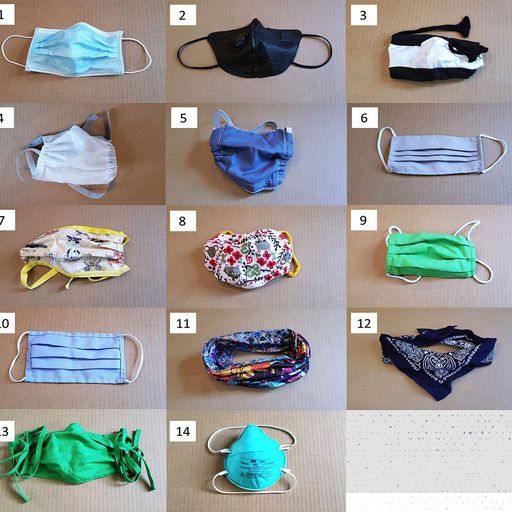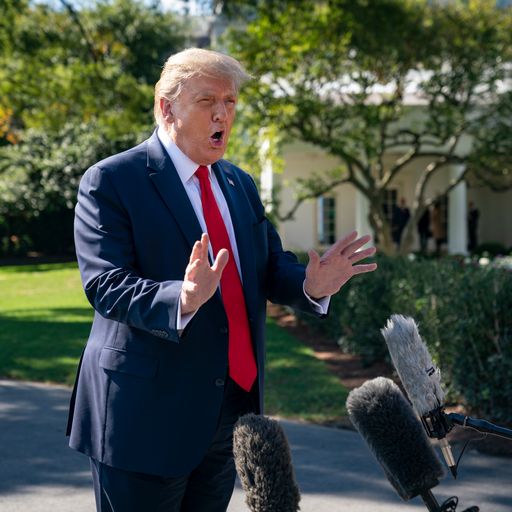Coronavirus: More than half of us are reusing disposable masks - and others aren't being washed much
Only around 12% of people that wear reusable masks are washing their coverings correctly, according to SAGE.
Friday 2 October 2020 17:46, UK
More than half of people who wear disposable face masks to protect against coronavirus are using them multiple times, while those who opt for reusable coverings are not washing them regularly, the government's top scientific advisers have found.
According to a report by the Scientific Advisory Group for Emergencies (SAGE), only one in eight people are washing reusable face coverings correctly, with 34% using them more than four times before they clean them.
While SAGE admits there is no hard evidence showing the effectiveness of washing reusable masks, the documents from 15 September say coronavirus is "readily inactivated by soap and water".
Regarding disposable masks, the report says those that are binned incorrectly could also pose a risk for those who handle waste, but SAGE suggests that safe handling and good hygiene can mitigate this.
Live updates on coronavirus from US, UK and around world
The report could prove to be important advice for Britons as face coverings become increasingly widespread, having been made mandatory across indoor spaces such as shops and museums - and on public transport.
Not wearing a face mask in such settings, without a specific exemption, could land repeat offenders with a fine of upwards of £3,200.
SAGE's report reiterates the importance of wearing masks to combat COVID-19.
"In most settings, extended duration of wearing is likely to have the greatest influence on reducing transmission risks relating to aerosol transmission; extended duration will reduce close range transmission for those activities that require prolonged close interaction with another person," it says.
The group adds that there is no evidence that wearing face coverings "significantly impact on normal breathing or oxygen levels, although there are some studies that suggest a small effect during exercise".
It does suggest, however, that wearing masks could contribute to skin conditions such as acne - although there is no hard data on this and it can be mitigated by good facial hygiene.
Despite the efficacy of masks, SAGE also warns of the risk that they lead to people forgoing other crucial behaviours, notably social distancing.
The documents say that encouraging Britons to wear face coverings in recent months has been used as a measure to allow the two-metre rule to be relaxed in some cases.
SAGE's findings have emerged days after thousands of people gathered in London to protest the wearing of masks, with claims it takes away civil liberties.
Many of those present at such demonstrations have also suggested COVID-19 is a hoax, which it demonstrably is not, while also peddling scientifically impossible conspiracy theories - such as it being caused by 5G masts.
It also comes on the day that one of the world's most vocal doubters of face masks, US President Donald Trump, revealed that he had tested positive for coronavirus.









